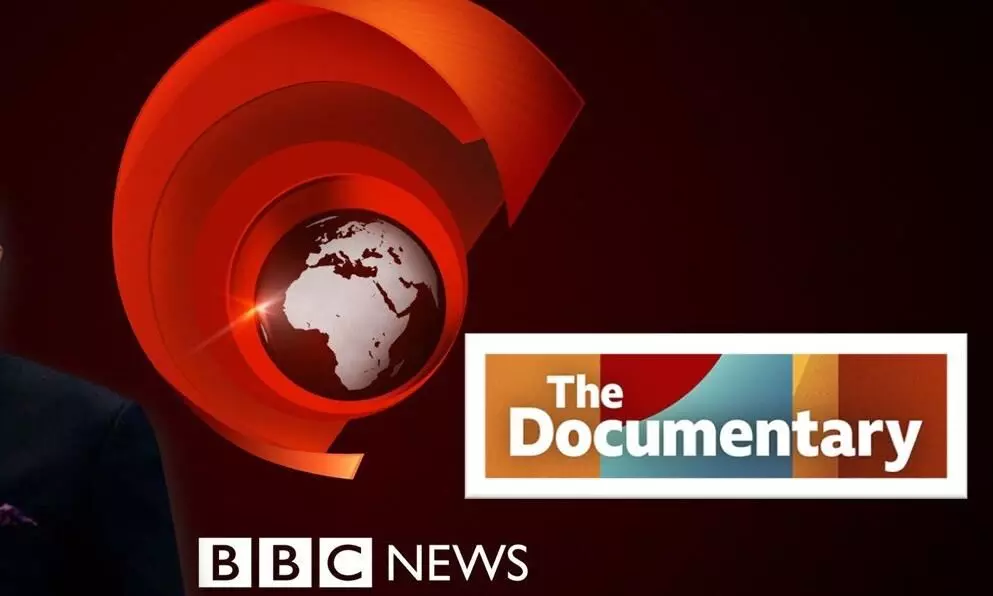
BBC calls documentary on Gujarat riots ‘rigorously researched’ against India’s ‘propaganda piece’ criticism
text_fieldsLondon: A BBC documentary that created ripples in India over the indictment of incumbent Prime Minister Narendra Modi for his alleged involvement in the 2002 Gujarat riot has been made to condemnation with strong words from the Indian government, calling it a “propaganda piece, designed to push a particular discredited narrative.”
In a statement to counter the Indian government’s criticism, the BBC said that the documentary, which was prepared after rigorous research on the 2002 Gujarat riot, features a “wide range of voices, witnesses and experts” besides featuring “a range of opinions, including responses from people in the BJP [Bharatiya Janata Party].”
The first part of the two-part documentary, which was aired on 17 January and the second part is expected to be released on 24 January, revisits the incident that happened in Gujarat where more than 2000 people, mostly Muslims, were reported to have been killed and several Muslim women and girls were raped, and several trades and industries owned by Muslims were looted when Narendra Modi was chief minister of the state.
The BBC in defence of releasing the documentary titled - India: The Modi Question – said that it approached the Indian government to get a reply from it over the matter featured in the documentary but in vain. “The documentary series examines the tensions between India's Hindu majority and Muslim minority and explores the politics of Mr Modi in relation to those tensions,” the statement said.
The BBC documentary also made Narendra Modi directly responsible for the riot, referring to an internal UK government report that was classified so far where it alleges the state authority commanded the police to let angry people vent their rage in response to the Godhra train burning, in which several Karsevaks were burned to death, by not taking action against them.
Reacting to the BBC documentary that held the Prime Minister responsible for the Gujarat riot, India’s Ministry of External Affairs (MEA) spokesperson Arindam Bagchi due to “the bias, a lack of objectivity,” India will not allow the documentary to be aired in the country.
He also termed the BBC documentary as an example of a “continuing colonial mindset” saying “If anything, this film is a reflection on the agency or individuals that are peddling this narrative again. It makes us wonder about the purpose of this exercise, the agenda behind it and we do not wish to dignify such efforts.”























